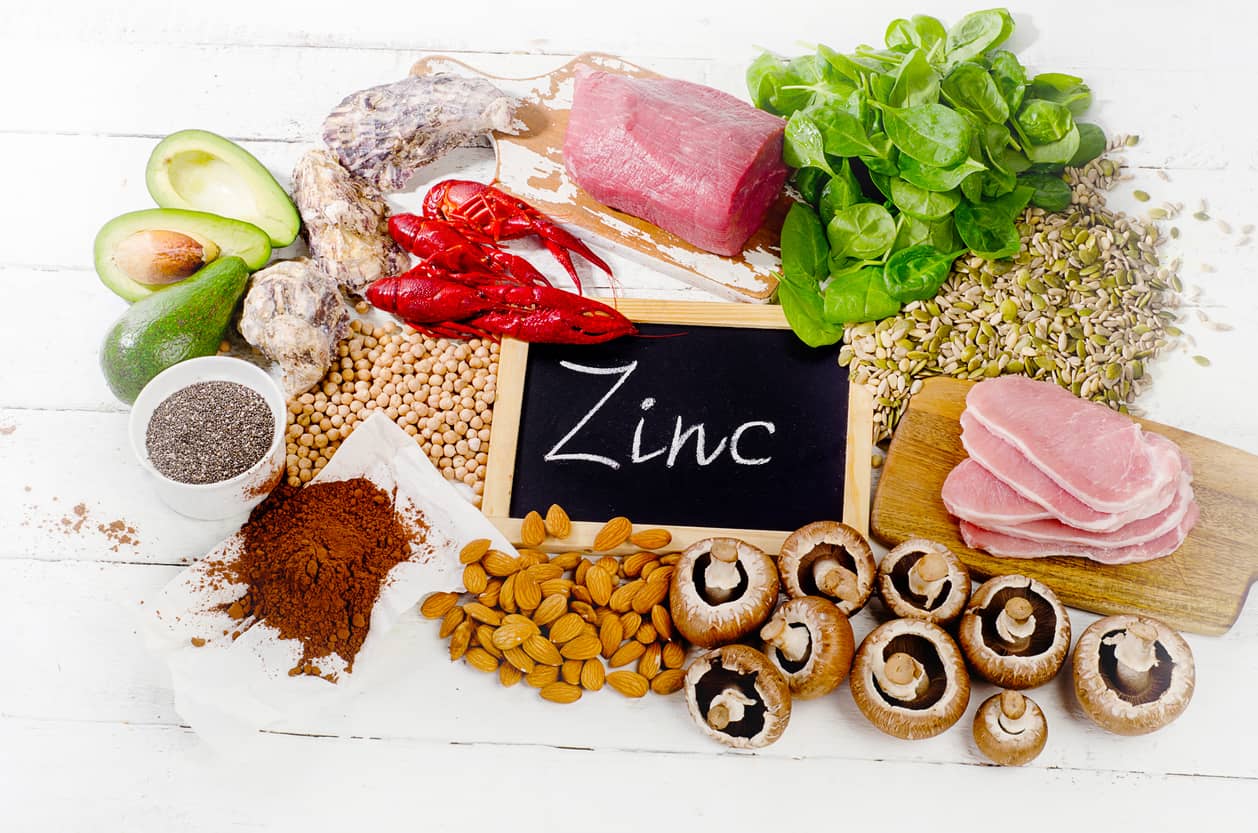The Benefits of Zinc
Welcome to our comprehensive guide on the benefits of zinc. In this article, we will delve into the numerous advantages that zinc offers for our overall health and well-being. Zinc is an essential mineral that plays a crucial role in various bodily functions. From supporting the immune system to aiding in wound healing, zinc is truly a remarkable element. Join us as we explore the significant benefits of incorporating sufficient zinc into your diet.
Boosts Immune System
Zinc is renowned for its immune-boosting properties. It plays a vital role in the development and functioning of immune cells, helping to fight off infections and keep illnesses at bay. Adequate zinc intake has been shown to reduce the duration and severity of the common cold and other respiratory infections. It also supports the production of antibodies, which are essential for a robust immune response.
Promotes Wound Healing
If you’re looking for a natural way to speed up wound healing, zinc can be your best friend. This essential mineral is involved in various stages of the wound healing process, including inflammation, tissue regeneration, and collagen synthesis. By promoting cell growth and reducing inflammation, zinc can help wounds heal faster and minimize the risk of complications.
Supports Growth and Development
Zinc is particularly important for children and adolescents as it supports proper growth and development. It is involved in DNA synthesis, cell division, and protein synthesis, all of which are crucial for healthy growth. Adequate zinc intake during pregnancy is also essential for the normal growth of the fetus. Including zinc-rich foods in your diet can ensure optimal growth and development in both children and adults.
Enhances Cognitive Function
Research suggests that zinc plays a role in cognitive function and may have a positive impact on memory and learning. It is involved in the transmission of signals between neurons, which is essential for various cognitive processes. Adequate zinc levels have been associated with improved cognitive performance, attention, and focus. Including zinc-rich foods in your diet can contribute to maintaining optimal brain health.
Supports Eye Health
Zinc is an essential mineral for maintaining healthy eyes. It is found in high concentrations in the retina and is involved in the production of melanin, a pigment that protects the eyes from harmful ultraviolet (UV) radiation. Zinc also plays a role in the metabolism of vitamin A, which is crucial for good vision. Ensuring sufficient zinc intake can support overall eye health and reduce the risk of age-related macular degeneration and night blindness.
Regulates Hormones
Zinc is involved in the regulation of various hormones in the body. It plays a role in the production and release of insulin, which is essential for maintaining stable blood sugar levels. Zinc also supports the production of testosterone, a hormone crucial for reproductive health in both men and women. By ensuring adequate zinc intake, you can help maintain hormonal balance and support overall well-being.
Strengthens Bones
Zinc is a vital mineral for maintaining strong and healthy bones. It is involved in the production of collagen, a protein that provides structure and strength to bones. Zinc also aids in the absorption and utilization of calcium, another essential mineral for bone health. Including zinc-rich foods in your diet can help prevent osteoporosis and support optimal bone density.

In conclusion, zinc is a remarkable mineral with numerous benefits for our overall health and well-being. From boosting the immune system to promoting wound healing, supporting growth and development, enhancing cognitive function, and strengthening bones, zinc plays a crucial role in various bodily functions. Including zinc-rich foods in your diet or considering zinc supplements can help ensure you meet your daily zinc requirements. Prioritizing zinc intake can contribute to a healthier and more vibrant life.
Frequently Asked Questions
1. What are the benefits of zinc?
Zinc offers numerous benefits for the body, including boosting the immune system, promoting wound healing, supporting healthy growth and development, and aiding in the synthesis of DNA and proteins.
2. How does zinc boost the immune system?
Zinc plays a crucial role in the development and function of immune cells, helping to strengthen the body’s defense against infections and diseases.
3. Can zinc help with acne?
Yes, zinc has been found to have anti-inflammatory properties and can help reduce acne breakouts by regulating oil production and promoting skin healing.
4. Does zinc help with cold and flu symptoms?
Zinc can help reduce the duration and severity of cold and flu symptoms by supporting immune function and inhibiting the replication of viruses in the body.
5. Is zinc beneficial for fertility and reproductive health?
Yes, zinc is essential for reproductive health in both men and women. It plays a vital role in sperm production, hormone regulation, and maintaining a healthy menstrual cycle.
6. Can zinc improve cognitive function?
Research suggests that zinc is involved in various cognitive processes and may play a role in memory, learning, and overall brain function.
7. Does zinc have antioxidant properties?
Yes, zinc acts as an antioxidant in the body, helping to protect cells from damage caused by harmful free radicals and oxidative stress.
8. Can zinc help with hair loss?
Zinc deficiency has been linked to hair loss, and supplementing with zinc may help promote healthy hair growth by supporting proper nutrient absorption and follicle function.
9. Is zinc important for eye health?
Yes, zinc is necessary for maintaining good eye health. It is involved in the production of melanin, which protects the eyes from harmful ultraviolet (UV) radiation.
10. Can zinc benefit individuals with diabetes?
Zinc plays a role in insulin production and utilization, making it important for individuals with diabetes. It may help improve glucose control and reduce the risk of complications.




